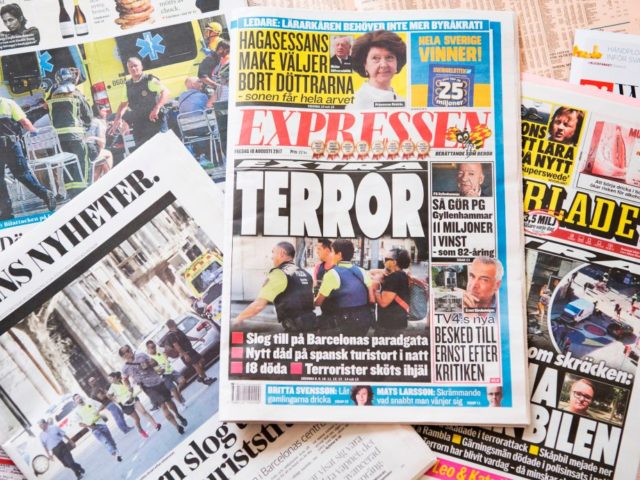Despite being in force since March 2020, no one has been charged under Sweden’s anti-terrorism law that enables the prosecute for membership of terrorist groups.
The lack of prosecutions comes despite many Islamic State fighters returning to Sweden over several years.
Per Lindqvist, chief prosecutor at the National Unit for Security Cases, told Sveriges Radio that there had been no charges laid against any suspected returning fighter because finding proof was difficult, as in Sweden prosecutors require evidence of such activities as handling weapons or explosives.
“The way in which the rules have been designed makes it quite difficult to prove this crime. A sign of this, of course, is that we have still not brought any charges so far since the law was created, nor have we requested any person to be placed in custody under this new legislation,” Lindqvist said.
Swedish Terror Expert: It’s Very Difficult to Prosecute Returned ISIS Members https://t.co/F4E1Bsnuh5
— Breitbart London (@BreitbartLondon) December 5, 2020
“To be able to prove that the suspect has actively helped, in a way that is punishable, is not easy,” he added.
Sweden’s terrorist laws have also been criticised by terrorism expert Magnus Ranstorp, who said in December that convicting returning Islamic state members was difficult.
Referencing a recently returned female Islamic State member, Mr Ranstorp said: “Anyone who has contact with IS can be classified as dangerous. But exactly how dangerous she is cannot be determined without knowing her psychological state or beliefs or exactly what she did [in Syria].”
Islamic State Returnees Allegedly Recruiting in Sweden https://t.co/gzxGk4lnAN
— Breitbart London (@BreitbartLondon) February 27, 2019
Meanwhile, Swedish lawmakers are proposing new legislation along similar lines that would make being a member of a group deemed to be “racist” a criminal offence.
The Committee on the Prohibition of Racist Organisations, formed in 2019, is set to deliver its report in April, and a majority of parties in the Swedish parliament back making it illegal to be a member of a racist group, according to newspaper Expressen.
Only the Left Party, the Liberals, and the populist Sweden Democrats have come out against such a prohibition, stating that it would counter free association and freedom of opinion. Swedish police have also criticised the idea, saying it would make it more difficult for them to monitor extremist groups.
Report: £100 Million of Swedish Taxpayer Cash Went to Radical Islamic Groups https://t.co/0Q6TGvVbNL
— Breitbart London (@BreitbartLondon) August 29, 2020

COMMENTS
Please let us know if you're having issues with commenting.